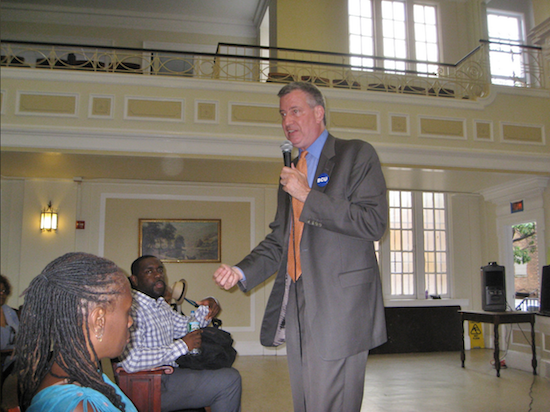De Blasio granted permission to help find new operator of LICH

In the continuum of legal maneuvers involving the embattled Long Island College Hospital (LICH) and the State of New York University-Downstate (SUNY), a Brooklyn Supreme Court justice has granted Public Advocate and mayoral candidate Bill de Blasio permission to help find a new operator for the hospital.
Brooklyn Supreme Court Justices Johnny Lee Baynes and Carolyn Demarest have, throughout the summer, placed various blocks on the attempts of LICH’s operator, SUNY, to cease LICH’s existence as a functioning hospital and maintaining LICH’s mission “to provide, on a non-profit basis, hospital facilities and services for the care and treatment of persons who are acutely ill or who otherwise require medical care…”
Given that SUNY has made it clear in its actions, legal filings and statements to the public to close LICH, Demarest has ordered a new operator be assigned to take over the operations of LICH and recommended that its former operator, Continuum Health Partners, take on the operator role once again. Continuum, however, has “adamantly refused to assume responsibility for operating the LICH hospital,” court papers revealed.
